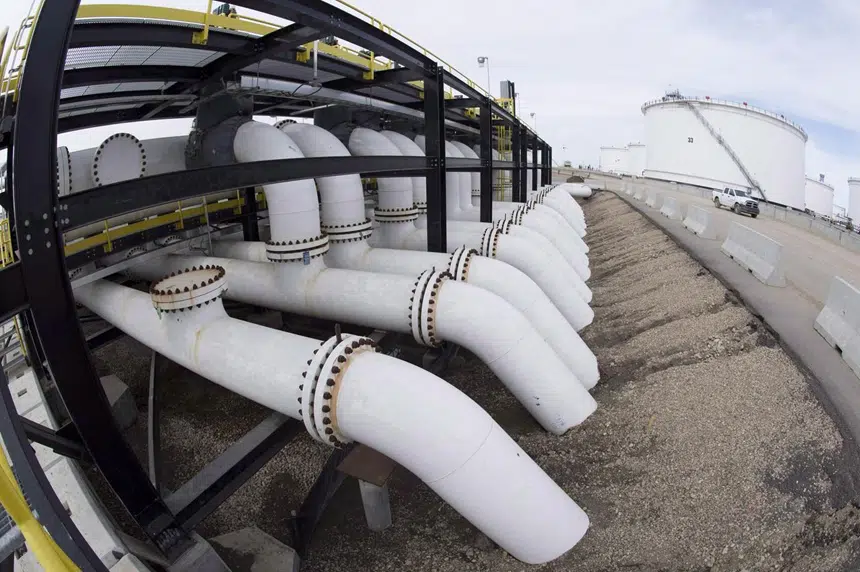By Linda Givetash, The Canadian Press
CALGARY — The National Energy Board has issued three decisions for the Trans Mountain pipeline expansion approving the tunnel route through Burnaby, B.C., and allowing construction to begin on a tunnel entrance.
The energy board said in a news release it is granting relief for pre-construction conditions on Trans Mountain property at the Westridge Marine Terminal where the Burnaby Mountain tunnel portal will be located.
The federal government approved the 1,147-kilometre pipeline between Alberta and the West Coast in November 2016 along a roughly 150-metre wide corridor, but the project continues to face political and public opposition in B.C.
The pipeline ends in Burnaby, B.C., where Mayor Derek Corrigan has vowed that the route will never be approved because of the damage and disruption it would cause his city.
But in its decisions, the energy board encouraged the city to collaborate with Trans Mountain to resolve concerns with the pipeline’s location.
“The Board is of the view that Burnaby and Trans Mountain can achieve more mutually acceptable outcomes by maintaining professional engagement on matters they are both responsible,” says the decision issued Thursday.
The construction at the terminal is still subject to federal, provincial and municipal permits, but the board said allowing work to begin now would avoid potential impacts on migratory birds that use the area later in the spring.
In its application to the board, Trans Mountain said it would take four to six weeks to conduct tree clearing at the entrance site, and the work would need to be completed before restrictions pertaining to birds came in effect.
If the window for construction was missed, Trans Mountain said that would delay work on the next phase of the $7.4 billion project.
The board also issued decisions over concerns filed by a resident and the City of Burnaby over the tunnelling of the pipeline through the Burnaby Mountain Conservation Area. Both presentations said the tunnel would create disruptive noise and vibration, and would damage the natural environment.
Documents from the board said it was satisfied by the mitigating efforts put forward by Trans Mountain to minimize disruption to residents, including a plan to monitor and report vibrations generated by the construction.
Trans Mountain has been directed to deliver a specific plan to monitor vibrations at least 30 days before tunnel boring begins.
Tunnelling was also determined to be the best method in reducing negative effects on the environment and residents, the board said.
The board said that 56 per cent of the pipeline route has been approved so far, but construction won’t be authorized until the remainder of the route is approved and other conditions are met.
More decisions are pending and a another set of route hearings in the Lower Mainland will be held in March, a spokesman with the National Energy Board said on Thursday.
The existing Trans Mountain pipeline has carried oil from near Edmonton to the marine terminal in Burnaby since 1953, but the additional line would nearly triple oil-shipping capacity.
The B.C. New Democrat government said it will limit the expanded shipment of diluted bitumen until environmental concerns can be addressed. The Alberta government responded by cutting off talks for the sale of electricity and halting B.C. wine imports.
The federal government has said it stands by its approval of the pipeline and the project will go ahead.
B.C.’s Environment Minister George Heyman said Wednesday that talks about the pipeline between federal and provincial bureaucrats have been underway since last week.
Companies in this story: (TSX:KML)







